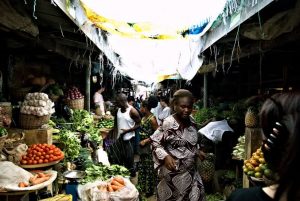Global appetite to buy property continues amid pandemic

In spite of the debilitating effect of the COVID-19 pandemic on economies across the world, the appetite to acquire property has not waned, International property consultant Knight Frank’s latest Global Buyer Survey has revealed.
The report, which was released this week, analysed the impact that COVID-19 had on residential buyers’ attitudes to purchasing homes around the world.
The World Property Journal reports that the survey, which represents the views of over 900 Knight Frank clients across 49 global markets found that, globally, 19 per cent of respondents have moved house since the start of the pandemic, and this rises to 25 per cent in Australasia and North America. Of the non-movers, 20 per cent are more inclined to move in 2021 as the pandemic continues.
Also, cities are back in favour. Out of those respondents who are more inclined to move in the next 12 months, 38 per cent of them are looking at city locations with 33 per cent opting for the suburbs.
According to the report, 46 per cent of respondents are more likely to buy a detached home or villa but demand for apartments has increased to 19 per cent, up from 12 per cent in 2020. This reflects an increase in demand for both larger, more spacious apartments, and pieds-a-terre in city centres.
The appetite for ski homes has increased from 11 per cent in 2020 to 18 per cent in 2021 with demand from North American and Asian buyers are above the global average.
While Eighty-four per cent of respondents said that the energy efficiency of a future home is important to them, 28 per cent said they would be more likely to buy an energy-efficient home if future environmental regulations were to have a direct impact on its value and around 27 per cent would be willing to pay a premium for a greener, more energy-efficient home.
Kate Everett-Allen, head of international residential research at Knight Frank said, “Over two-thirds of people expect the value of their current home to increase in the next year with most expecting a rise of between one per cent and 9 per cent over the 12-month period. This coincides with Knight Frank’s Prime Global Forecast which highlights that global house prices are, on average, likely to increase by 4 per cent in 2021.”
Further findings from the report reveal that the pandemic has sparked a wave of second home demand. Some 33 per cent of buyers say they are more likely to purchase a second home as a result of Covid-19, up from 26 per cent last year. Of those looking to buy a second home, 23 per cent say the pandemic has influenced where they want to buy and 22 per cent say it has delayed their purchase plans.
Mark Harvey, head of international residential sales at Knights Frank also commented, “Prime buyers in Europe and the U.S. will find a markedly different landscape now to 2020. Stock is lower, vendors are less willing to negotiate on price and, after several months of tight travel restrictions, overseas demand is strengthening.
Some buyers are willing to take a more watchful approach and wait until the final quarter of the year when they hope vendors will be less intransigent on price. Others are keen to act quickly where they can see the compelling value before prices shift higher.
“Two trends stand out in the last few months. Firstly, a growing ambivalence of some buyers when it comes to the location provided they can secure a co-primary home that delivers the lifestyle and enjoyment they feel they’ve missed out on. And, secondly given low savings rates and frothy stock markets, buyers are taking a more defensive stance by rebalancing their portfolios with a greater focus on tangible assets such as property.”
Looking to branded residences, one in three buyers (39%) would be willing to pay a premium for a branded residence according to the survey, a figure that rises to 45 per cent and 43 per cent in Australasia and Asia respectively. Top amongst the key motives for purchasing a branded residence is the service provider and amenities such a development affords. Second, comes the development’s high-yielding potential and in third place, the building’s management and maintenance proved an appealing prospect.
The report sheds light on the pandemic-induced surge in property purchases by expatriates looking to acquire a base back home. The survey results confirm that the U.S., Singapore, Hong Kong, the UK and the Philippines were the key locations expatriate respondents were based before the pandemic. For those that returned home, a desire to be closer to family (36%) was the biggest motivating factor, followed by an improved quality of life (24%) and a change in employment circumstances (16%).









